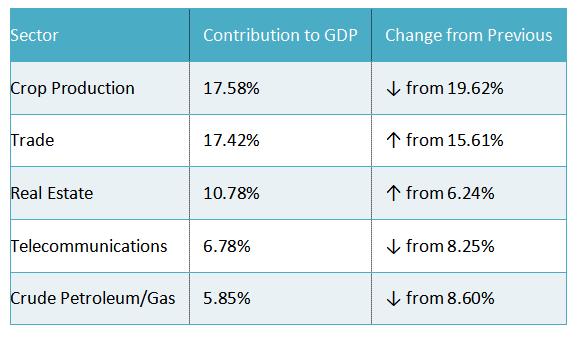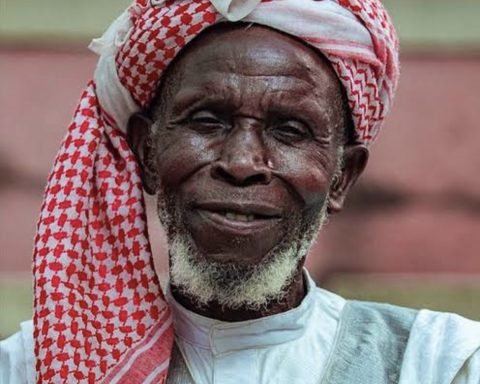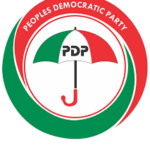Nigeria’s recent Gross Domestic Product (GDP) rebasing exercise and reported economic growth present a striking contradiction to the lived realities of most Nigerians, according to analysts.
While official statistics show an expanding economy with a 3.13 per cent growth rate in the first quarter (Q1) of 2025, nearly 39 per cent of the population lives below the poverty line, and food inflation remains alarmingly high at 21.97 per cent.
Join our WhatsApp ChannelThis paradox between macroeconomic indicators and microeconomic suffering reveals fundamental structural challenges in Africa’s most populous nation.
The Nigeria’s National Bureau of Statistics (NBS) recently completed a comprehensive rebasing of the country’s GDP, shifting the base year from 2010 to 2019 to better capture current economic realities.
According to the report presented by Statistician General of the Federation, Prince Adeyemi Adeniran, on Monday, Nigeria’s GDP reached N372.82 trillion ($243 billion) in 2024 in nominal terms. This is about 30 per cent higher than IMF forecasts (of $187.6 billion) and represents significant growth from N205.09 trillion in the base year of 2019.
The report shows that the services sector now dominates at 57.50 per cent of real GDP, with telecommunications (10.59 per cent) and finance (15.03 per cent growth) as top performers. Real estate has displaced oil as the third-largest sector (10.78 per cent), while oil’s contribution declined to just 3.97 per cent.
READ ALSO: Services, Industry Sectors Drive Nigeria’s Economic Growth As GDP Rises By 3.13% In Q1 2025
Also, the numbers indicate that the debt-to-GDP ratio improved to 39.4 per cent, below the government’s 40 per cent threshold, though absolute debt continues rising (N149.39 trillion as of Q1 2025).
Real GDP growth accelerated to 3.13 per cent in Q1 2025 from 2.27 per cent in Q1 2024, with projections of 4.17 per cent for 2025.
Nigeria’s Top Economic Sectors After Rebasing (2024)
The Poverty Paradox: Growth Without Development
Despite these positive indicators, Nigeria’s economic progress has failed to translate into tangible improvements for most citizens
Persistent Poverty: 38.8 per cent of Nigerians live below the poverty line, with the World Bank projecting a 3.6 per cent increase in poverty rates over the next five years.
Soaring Living Costs: Headline inflation stands at 22.22 per cent (June 2025), with food prices high ( food inflation at 21.97 per cent). The naira’s depreciation has eroded purchasing power in the last two years as the country is import-dependent. Comparing the naira over 10 years shows that it depreciated, falling from ₦200/$ in 2015 to ₦1,530/$ in 2025, making dollar-denominated GDP smaller.
Informal Sector Dominance: The informal sector accounts for 42.5% of GDP, reflecting millions trapped in low-productivity subsistence activities rather than quality employment.
Sectoral Imbalances: The latest GDP report reveals what analysts believe amounts to sectoral imbalance. While services thrive, agriculture—employing most Nigerians—grew by just 0.07 per cent, hampered by insecurity and poor mechanization practices.
Global Standing: Nigeria remains Africa’s fourth-largest economy, having fallen from first position in 2014 when its GDP was about $510 billion compared to $243 billion today. It is currently behind South Africa ($410bn), Egypt ($347bn), Algeria ($269bn), according to the International Monetary Fund report.
READ ALSO: Again, CBN Retains Benchmark Interest Rate At 27.5%
Commenting on the GDP size, an economist and public affairs analyst, Mr Kelvin Emmanuel, said floating of the naira led to devaluation of the GDP, thereby shrinking the value in dollar terms.
“The floating of the naira to where it is now, automatically led to the devaluation of the GDP of Nigeria. So, Nigeria’s GDP went from over 500 billion dollars to about 188 billion dollars,” Emmanuel stated.
Statistical vs Real Growth
While reacting to the GDP report, the African Democratic Alliance (ADC) criticised the rebasing as “economic cosmetics”, arguing that while GDP figures look better, they don’t reflect increased industrial output, agricultural productivity, or real incomes. Also commenting on the GDP report, a financial analyst, Kalu Aja, said it has not reflected real growth considering the population growth. “The GDP Growth has been somewhat anemic, when you consider the population growth is around 2.9%. This means to see any “real” GDP growth, the economy has to hit at least 3%.”
Citing statistics, Aja said the country’s GDP reflected real growth from 2000 to 2014 as it was above the population growth rate within the period, but from 2015 to date, Nigeria has not achieved up to 5 per cent GDP growth rate.
“From 2000 to 2014, Nigeria’s GDP growth was above the population growth rate, in effect real growth. For context, from 2000 to 2014, the LOWEST GDP rate recorded was 4.21% in 2012. From 2015 to date, Nigeria has not hit 5% GDP growth, that’s in a decade. With the recent GDP rebase, Nigeria’s population is still growing, but output has stagnated to $243b,” Aja stated.
READ ALSO: Nigeria’s Gross External Reserves Rise To $40.11bn – CBN
The official 4.3 per cent unemployment rate masks widespread underemployment, with most new jobs being low-quality informal sector positions. Other challenges in the country include power shortages (average 4,000MW for 200 million people), poor infrastructure, and insecurity, which continue to constrain productive sectors.
Policy Implementation Gaps: While reforms like fuel subsidy removal and naira floatation were economically necessary, analysts have highlighted poor execution, which has worsened the cost of living.
The true test for Nigeria’s policymakers will be transforming this statistical growth into broad-based development that creates jobs, stabilizes prices, and lifts millions out of poverty. Without addressing the structural bottlenecks and implementation gaps that have perpetuated the growth-poverty divide, Nigeria risks continuing its pattern of economic expansion that benefits few while leaving the majority behind.
Aja called on the Federal Government and sub-nationals to step up efforts in “delivering economic prosperity to Nigerians.”
Victor Ezeja is a passionate journalist with seven years of experience writing on economy, politics and energy. He holds a Master's degree in Mass Communication.











